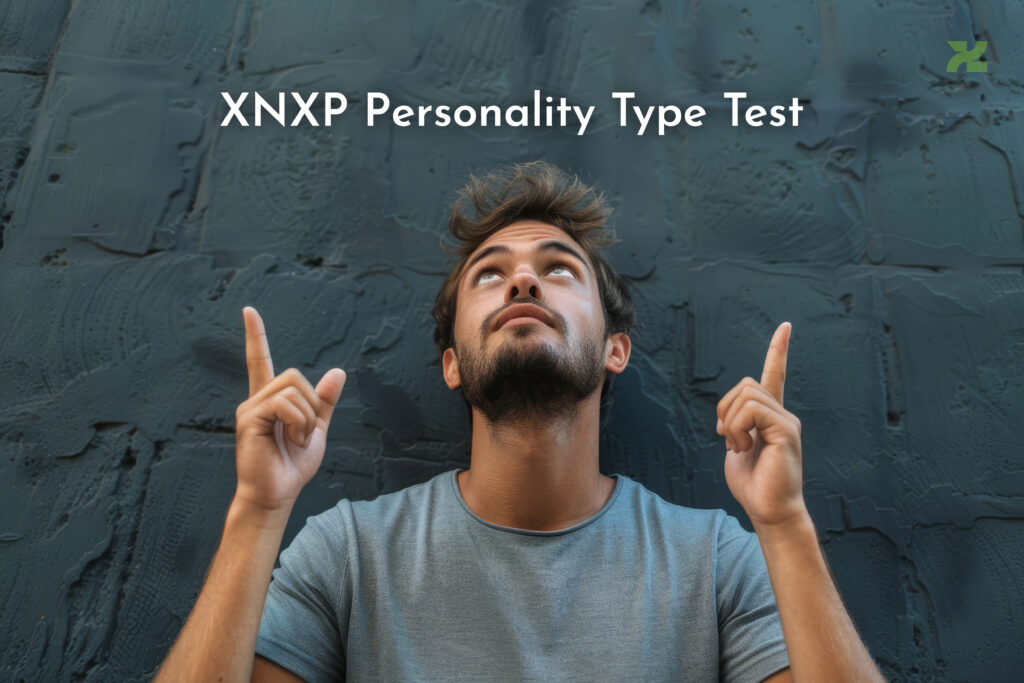The XNXP personality type is a unique blend in personality psychology, offering a flexible, open-minded, and imaginative approach to life. The “XNXP” categorization, rooted in the Myers-Briggs Type Indicator (MBTI), represents a flexible combination of personality traits where the individual is characterized by Intuition (N) and Perceiving (P), while the Extraversion/Introversion and Thinking/Feeling functions vary. Essentially, an XNXP individual may lean towards being an INFP, INTP, ENFP, or ENTP, but what distinguishes them is a strong tendency toward intuitive and perceiving traits over the other dichotomies.
This combination allows XNXP personalities to exhibit certain remarkable qualities, such as being comfortable with ambiguity, often thriving in spontaneous, less rigid environments, and preferring flexibility over structure. The XNXP personality type test helps individuals recognize these tendencies, allowing for a better understanding of their unique strengths and areas of growth. This personality type is often characterized by curiosity, adaptability, and a non-conforming approach to societal expectations, making it an ideal fit for creative fields, problem-solving roles, or exploratory pursuits.
Table of Contents
Key Traits of XNXP Personality Types
Individuals with the XNXP personality type are characterized by their highly adaptive nature, intellectual curiosity, and innovative thinking. These people tend to thrive in dynamic, unpredictable environments where flexibility and openness to new experiences are valued. This personality type often exhibits a natural drive toward creativity and exploration. They are likely to question societal norms, avoid traditional constraints, and look for alternative ways of approaching life and work. Their openness makes them excellent big-picture thinkers, more focused on concepts and ideas than strict details, which can make them valuable in roles that require brainstorming and forward-thinking perspectives.
Additionally, XNXP individuals often display strong interpersonal skills, and their openness allows them to easily connect with diverse people. They are known to embrace ambiguity, thriving in less structured environments where they can innovate and explore new ideas without the limitations of rigid expectations. This comfort with uncertainty can make them excellent problem-solvers who can generate unique solutions that others may overlook. However, their preference for spontaneity and flexibility can sometimes lead to challenges in highly structured environments, where deadlines and routines can feel restrictive. Despite these potential obstacles, the adaptability and resilience of XNXP personalities enable them to continually seek new knowledge, experiences, and creative outlets that match their natural inclinations.
How the XNXP Personality Type Test Works
The XNXP personality type test is based on the well-known MBTI framework, which categorizes individuals across four dimensions: Extraversion vs. Introversion, Sensing vs. Intuition, Thinking vs. Feeling, and Judging vs. Perceiving. For XNXP personalities, the key distinguishing factors are Intuition (N) and Perceiving (P). In this type, the remaining traits—Extraversion/Introversion and Thinking/Feeling—are more fluid and less pronounced, meaning that individuals may experience slight tendencies toward one side or the other. This results in a more flexible and less rigid personality categorization, where XNXPs can vary significantly in their behavior, depending on context and environment.
Taking an XNXP personality type test provides insights into an individual’s dominant preferences and cognitive functions, helping them understand their inherent strengths and areas for growth. Popular tools for exploring XNXP personality traits include the 16Personalities test, which combines elements of the MBTI with other modern insights, and the classic MBTI test itself. By interpreting one’s preferences across these dimensions, the test can identify how individuals perceive the world and interact with others. These insights can be especially useful for personal development, career planning, and understanding interpersonal dynamics. For example, XNXPs often excel in settings that value creativity and adaptability, where they can leverage their unique approach to problem-solving and exploration.
Challenges and Strengths of XNXP Personalities
The XNXP personality type comes with its own set of strengths and challenges, reflecting the unique flexibility and adaptability of those who fit within this category. One of the most notable strengths of XNXP individuals is their creativity and ability to think outside the box. Their intuitive and perceptive nature often allows them to approach situations with fresh perspectives, generating ideas that others might overlook. This creativity can be a significant asset in fields like the arts, science, or entrepreneurship, where innovation is highly valued. Additionally, their flexibility makes them highly adaptable to change, which can be especially beneficial in today’s fast-paced, evolving world.

However, the same flexibility that makes XNXPs innovative can also present some challenges. XNXP personalities may struggle with decision-making and commitment, as their openness to new possibilities can lead to indecisiveness or a lack of follow-through on certain tasks. They might also find it difficult to thrive in highly structured or rule-bound environments, where their preference for spontaneity and exploration is limited. This tendency can lead to frustration or dissatisfaction in roles that require strict schedules and rigid procedures. Recognizing these challenges, XNXPs can benefit from environments that allow freedom and flexibility, where they can leverage their creativity while implementing strategies to manage decision-making and maintain focus on long-term goals.
Why Take the XNXP Personality Type Test?
Taking the XNXP personality type test can be a valuable experience for anyone seeking to gain deeper insights into their behaviors, preferences, and natural strengths. One of the key benefits of understanding one’s personality type is that it provides a framework for self-reflection, allowing individuals to explore how their unique blend of traits influences their decisions, relationships, and reactions to various situations. For XNXPs, this test highlights their dominant intuition and perceiving traits, which means they tend to be open to possibilities, adaptable, and future-oriented. With this knowledge, XNXPs can better understand why they may excel in creative environments or why they thrive in roles that allow them to explore new ideas freely.
Additionally, the XNXP personality type test can be an excellent tool for career and personal growth. Knowing one’s tendencies toward creativity, flexibility, and open-mindedness can guide individuals in choosing professions or roles where these traits are assets, such as in artistic, entrepreneurial, or research-oriented fields. This test also provides insight into potential challenges XNXPs may face, such as decision-making struggles or a tendency toward distraction, and allows individuals to proactively work on these areas. By aligning personal and professional goals with their strengths, XNXPs can build a life that resonates with their natural inclinations, making the test a meaningful tool for long-term satisfaction and growth.
Comparing XNXP Types with Other Personality Types
The XNXP personality type stands out among other Myers-Briggs types due to its distinctive blend of Intuition (N) and Perceiving (P) functions, setting it apart from more defined MBTI types like INFP or ENFJ. In contrast to Judging types, for example, XNXPs have a flexible approach to life and are comfortable with ambiguity, often thriving in environments where exploration is encouraged over strict rules and routines. They prioritize ideas, possibilities, and the “big picture” over details, which aligns with their open-minded and adaptable nature. While other MBTI types may seek stability and clarity, XNXPs embrace spontaneity, making them well-suited for roles or activities that require innovation and fluidity.
Compared to types that are highly structured, such as XNXJs (e.g., INFJ or ENTJ), XNXPs approach goals and decisions with a more fluid mindset. This flexibility allows them to adapt quickly to changing circumstances, whereas Judging types may prefer to plan and follow a set path. However, the XNXP personality may also face unique challenges, such as difficulty in committing to decisions or following through on projects, as they are naturally inclined to explore multiple possibilities. This tendency makes them highly versatile and able to connect with others in a variety of ways, but it may also result in difficulty when operating within rigid systems or environments. Understanding these comparisons can help XNXPs appreciate their distinctive strengths while learning from the more structured tendencies of other personality types.
Finding the Right XNXP Test for You
Choosing the right XNXP personality type test is an essential step toward understanding this unique blend of personality traits and gaining valuable insights into one’s strengths, challenges, and interpersonal dynamics. Various personality assessments can offer clarity on whether someone fits the XNXP profile, each providing its own strengths. The classic MBTI test, for instance, helps in identifying core tendencies across the four dimensions of Introversion/Extraversion, Sensing/Intuition, Thinking/Feeling, and Judging/Perceiving, which can clarify whether someone has the NP (Intuition and Perceiving) qualities central to the XNXP profile. Another popular option is the 16Personalities test, which combines MBTI principles with added factors to create a nuanced personality report tailored to each user.
When interpreting results from these tests, it’s important for individuals to look at more than just a fixed category. XNXPs may fall close to midpoints on the Extraversion/Introversion and Thinking/Feeling scales, making them a blend of several tendencies rather than a strictly defined type. For a well-rounded understanding, individuals may also explore the Big Five personality traits or the Enneagram, which provide insights into one’s openness, emotional tendencies, and interaction styles beyond the MBTI structure. These additional tests can further reveal areas for personal growth, such as how an XNXP can balance flexibility with decision-making or leverage their intuitive qualities in structured settings. Taking multiple tests or consulting in-depth guides helps XNXPs apply their unique traits effectively, enabling them to embrace their strengths in both personal and professional contexts.
READ MORE : Kevin McCarthy Wife Age: A Closer Look at Judy McCarthy


